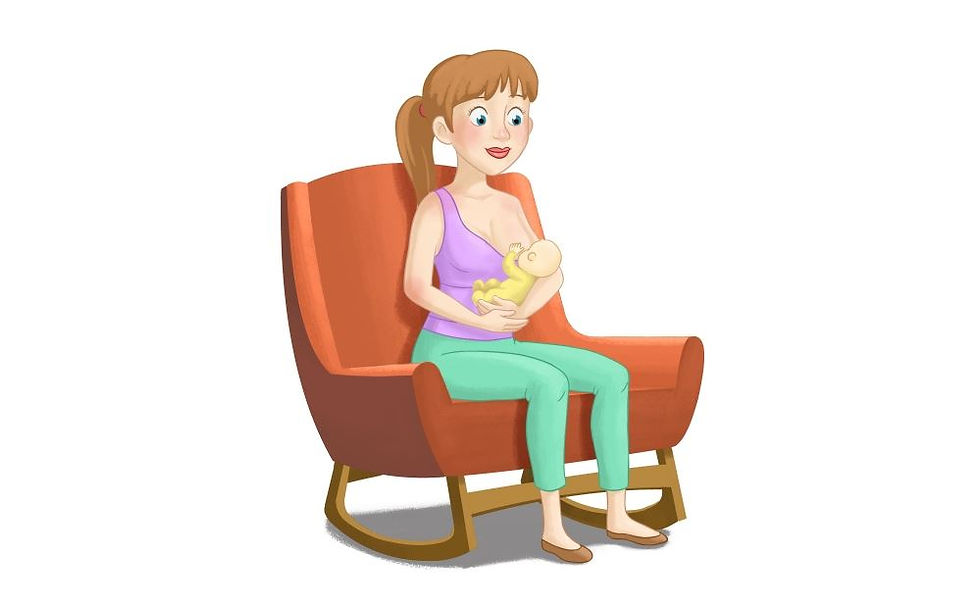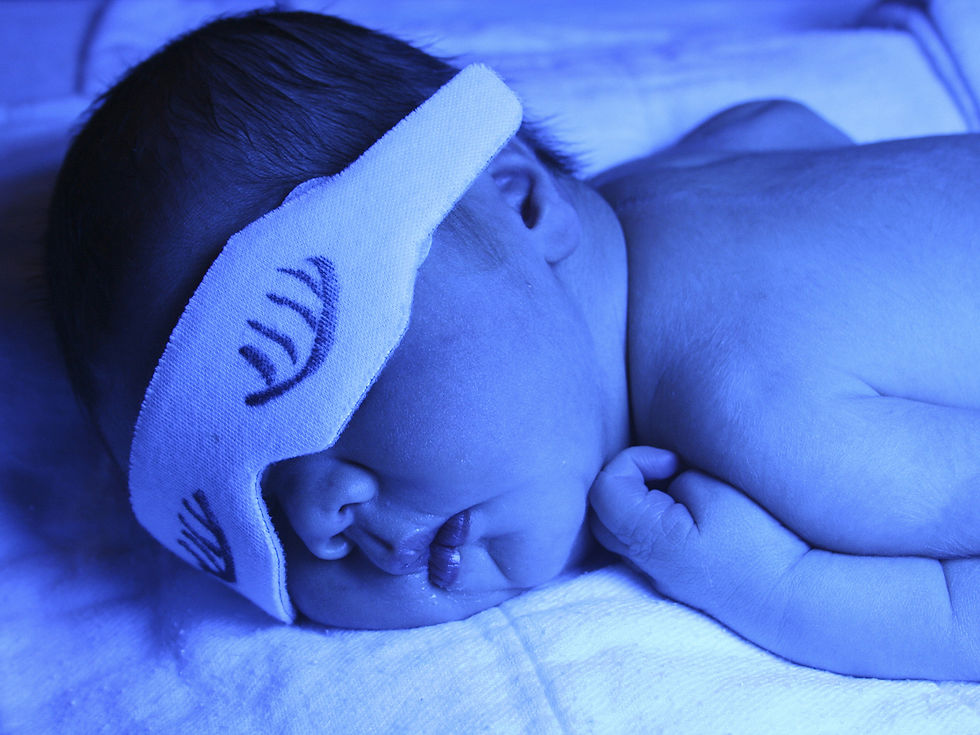Index
I. Introduction
V. Conclusion

Introduction
Are you a new parent who is concerned about your baby's skin's yellow hue? There’s only one possible cause for this: Jaundice. A little fun fact for everyone: Did you know that breastfeeding could be an influencing factor for neonates developing jaundice? Join us as we demystify this intriguing subject and provide you the tools you need to take charge of your child's health. Let’s dive right in and learn how to manage jaundice while nursing!

Factors of Infant Jaundice
Infants' development of jaundice can be influenced by a number of variables, such as:
Insufficient formula/breast milk consumption - Lack of milk consumption may prevent a newborn from excreting bilirubin as soon as it should, causing a buildup of bilirubin within the blood.
Hemolysis (breakdown of red blood cells) - Jaundice develops when there is too much bilirubin in the blood as a result of red blood cell decomposition occurring more quickly than the liver can remove it.
Immature liver - The liver of a newborn may not be fully formed and may not be able to process bilirubin as properly as the liver of an adult.
Inadequate bilirubin processing - The liver's capacity to handle bilirubin can be impacted by certain hereditary disorders or liver ailments.
Incompatible blood groups - When a mother and child share a different blood type, the infant's immune system may create antibodies that target the mother's red blood cells, causing hemolysis and jaundice.
Blocked bile duct - Jaundice can develop when the bile ducts are clogged because bilirubin cannot be eliminated from the body and it may build up in the blood.
Genetic abnormalities - Jaundice can result from hereditary conditions that impair the liver's capacity to handle bilirubin or the breakdown of red blood cells.
Infections - Jaundice may result from certain illnesses like hepatitis or sepsis.
Medications - Jaundice may result from taking certain drugs, including sulfonamides and antibiotics.
Hazardous chemicals or toxins - Jaundice can be brought on by toxic or dangerous chemical exposure.
It's important to remember that jaundice can have a variety of causes. Because it can be challenging to pinpoint the underlying cause in some cases, more testing may be required.

Treatment and Identification of Infant Jaundice
a) Healthcare professionals will conduct many tests to detect jaundice, including:
Physical examination - A medical professional's physical examination can aid in determining the presence of jaundice and the severity of it.
Blood tests - Blood tests can assist identify the source of jaundice by measuring the amount of bilirubin in the blood.
Ultrasound - An ultrasound can help to identify any blockages in the bile ducts or abnormalities in the liver or gallbladder that may be causing jaundice.
b) There are a couple of treatment used to treat jaundice, such as:
Phototherapy - To reduce bilirubin in the skin, a procedure called phototherapy is being done by using specific lights. Newborns with jaundice are frequently treated with it. Look no further though... Here at lampujaundice.my, we provide only cutting-edge lamps within the convenience of your own home with our phototherapy light rental service. Let's give your child the gift of wellness. Rent a light right away, and watch your child reach new heights without having jaundice obscure their brilliant potential!
Blood exchange - To remove bilirubin from the infant's blood in cases of severe jaundice, an exchange transfusion may be required.
Tackling the core issue - Taking care of the underlying issue, such as unblocking a bile duct or curing infections, may also be essential for jaundice treatment.
It is significant to remember that the severity and underlying cause of a baby's jaundice will determine how the disease is treated. The medical professional will examine the infant and suggest the best course of action. Jaundice in neonates is mostly harmless and goes away on its own, but in some situations, it can need medical attention to avoid complications.
How to Prevent Jaundice
There are a few things that can be done to stop infants from getting jaundice:
Early and consistent feedings - By boosting bilirubin elimination through the baby's bowel movements, encouraging prompt and consistent feedings can assist to reduce jaundice.
Warming the infant - By encouraging bilirubin excretion through the baby's skin, keeping the baby warm can assist to prevent jaundice.
Limit sunlight exposure - By limiting the breakdown of bilirubin in the skin, avoiding exposure to sunlight can assist to prevent jaundice.
Checking the bilirubin levels - Regular blood tests to measure bilirubin levels can help to detect jaundice early and enable early treatments.
Addressing the root causes - Jaundice can be avoided by dealing with underlying issues like blood group incompatibility or bile duct obstruction.
Medications with caution - Jaundice can be avoided by using medications carefully and avoiding substances that can exacerbate the condition.
Vaccinations - Jaundice can be avoided by immunizing the infant against illnesses such as hepatitis B and others.
.png)
Comments